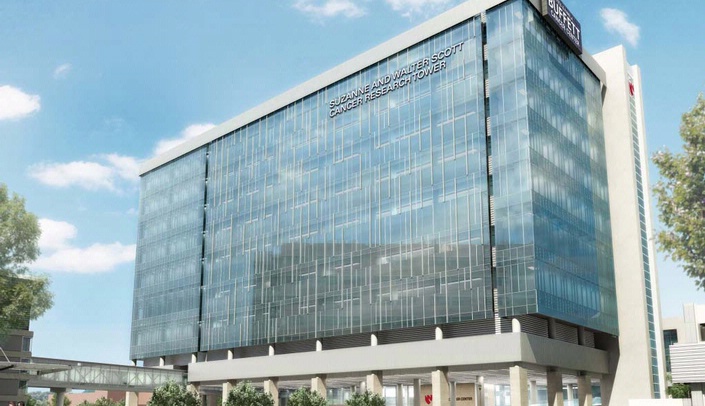In response to low national vaccination rates for the human papillomavirus (HPV), the Fred & Pamela Buffett Cancer Center in Omaha, has joined 68 other top cancer centers in issuing a statement urging for increased HPV vaccination for the prevention of cancer. The institutions collectively recognize insufficient vaccination as a public health threat and call upon the nations’ physicians, parents and young adults to take advantage of this rare opportunity to prevent many types of cancer.
National Cancer Institute (NCI)-designated cancer centers joined in the effort in the spirit of President Barack Obama’s State of the Union call for a national “moonshot” to cure cancer, a collaborative effort led by Vice President Joe Biden.
“Here in Nebraska, there are about 60 new cases of cervical cancer diagnosed every year,” said Ken Cowan, M.D., Ph.D., director of the Fred & Pamela Buffett Cancer Center. “When you take into consideration that cervical cancer is preventable, it is crucial that we strongly encourage people to discuss the HPV vaccine and other screening tests, such as Pap smears, with their healthcare providers.”
Sonja Kinney, M.D., director of the division of general obstetrics and gynecology at the University of Nebraska Medical Center, who sees patients at Nebraska Medicine, said the HPV vaccine is considered the standard of care for girls and boys between the ages of 9 to 26 years old.
“The main goal of is to fight against the two high-risk HPV strains that are responsible for causing 70 percent of all cervical cancers and two low-risk HPV strains that cause 90 percent of genital warts,” Dr. Kinney said. “The vaccines are given as a series of injections that prompt the body’s immune system to make antibodies. These vaccines also provide protection against head and neck cancers and some anal cancer that may be linked to infection with the HPV virus.”
According to the Centers for Disease Control and Prevention (CDC), HPV infections are responsible for approximately 27,000 new cancer diagnoses each year in the U.S. Several vaccines are available that can prevent the majority of cervical, anal, oropharyngeal (middle throat) and other genital cancers.
Vaccination rates remain low across the U.S., with under 40 percent of girls and just over 21 percent of boys receiving the recommended three doses. Research shows there are a number of barriers to overcome to improve vaccination rates, including a lack of strong recommendations from physicians and parents not understanding that this vaccine protects against several types of cancer.
To discuss strategies for overcoming these barriers, experts from the NCI, CDC, American Cancer Society and more than half of the NCI-designated cancer centers met in a summit at MD Anderson Cancer Center last November. During this summit, cancer centers shared findings from 18 NCI-funded environmental scans, or detailed regional assessments, which sought to identify barriers to increasing immunization rates in pediatric settings across the country.
The published call to action was a major recommendation resulting from discussions at that summit, with the goal of sending a powerful message to parents, adolescents and health care providers about the importance of HPV vaccination for cancer prevention.
We are Nebraska Medicine and UNMC. Our mission is to lead the world in transforming lives to create a healthy future for all individuals and communities through premier educational programs, innovative research and extraordinary patient care.
